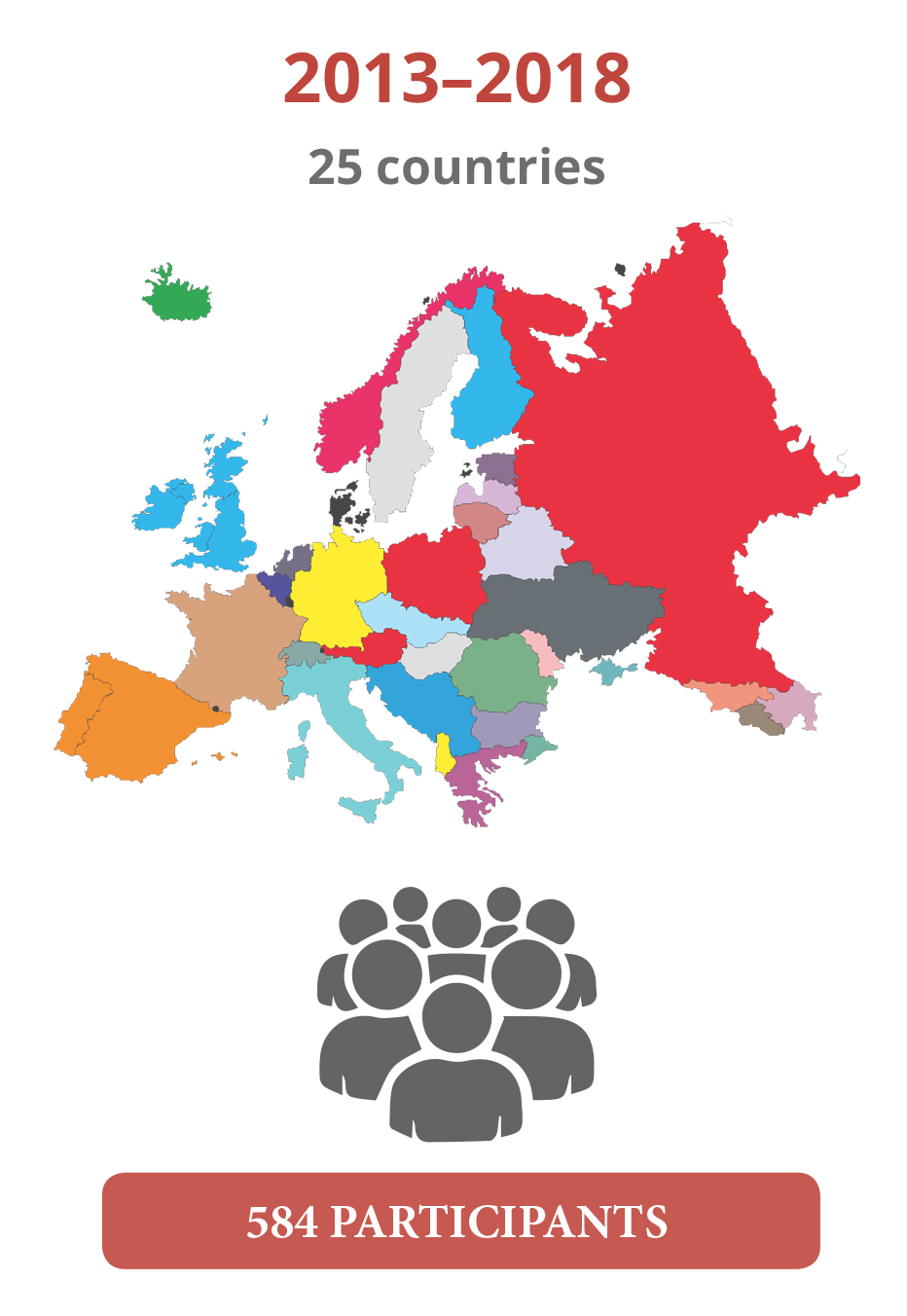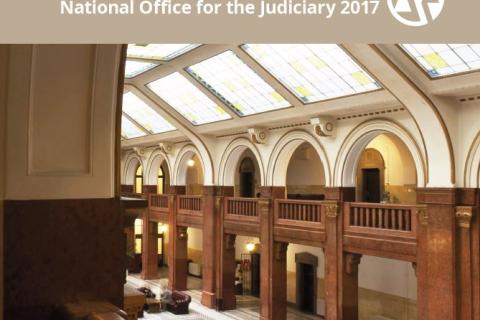Detailed search
The Hungarian scholar of the EJTN Long Term Exchange Program takes every opportunity to increase her knowledge.
District courts reduced the number of cases pending for more than two years from 10,110 in 2010 to 5,772, and the first-instance councils of regional courts managed to reduce 3,635 cases in 2010 to 1,771 by the end of 2018.
As of January 2020, there will be a significant increase in judicial salaries, the preparation of which the government entrusted on the National Office for the Judiciary (NOJ), the Ministry of Justice and the Ministry of Finance. The President of the NOJ and László Trócsányi, the Minister of Justice, discussed different tasks related to these issues.
Continuing the dialogue initiated by the NOJ on 6 November 2019, dr. Árpád Répássy, vice-president of the NOJ personally handed over the annual report of the president of the NOJ 2018 to the members of the NJC, along with the celebratory volume entitled "We Are Judges", which contains the thoughts of the great judges' predecessors on the judicial profession, independence, impartiality, fairness and justice.
„European justice in the face of the challenges of digital technology” a two-day Ministerial Conference on Justice was held in Strasbourg. Representatives of the 47 member states of the Council of Europe exchanged views on new opportunities for access to justice in the digital age and on the impact of digital technology on justice.
In the first quarter of 2019, the soundness of criminal judgments has further increased in the district courts, where 75.1% of all criminal cases were finished. 78.8% of the judgments have become final already at first instance.
The Hungarian National Assembly – in line with the motion of the Committee on Justice – confirmed the President of the National Office for the Judiciary (NOJ) in her office.
The annual report of the President of the National Office for the Judiciary (NOJ) gives a comprehensive overview of the results achieved by courts as well as the realization of strategic goals.
Each year an anonymous and voluntary survey has been carried out among judges since 2015. The survey is meant to find out how judges see the impartiality and independence of the judiciary in Hungary.






 Continuing the success of the last six years’ conferences with the participation of 584 guests from 25 European countries in total, the National Office for the Judiciary organises the next international Conference on Courts and Communication in Budapest on 15-16 October 2019.
Continuing the success of the last six years’ conferences with the participation of 584 guests from 25 European countries in total, the National Office for the Judiciary organises the next international Conference on Courts and Communication in Budapest on 15-16 October 2019.


